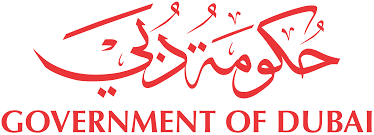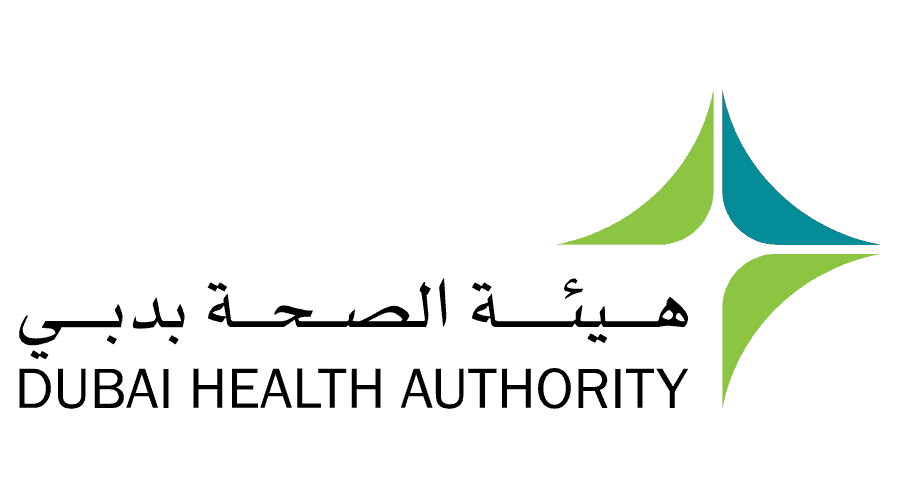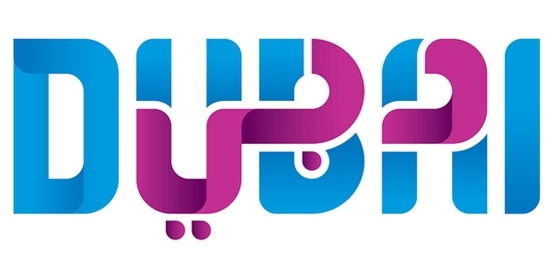- 100% Ownership
- Company Formation in 5-10 Days
- 0% Income Tax
Comprehensive Support with your Business Setup in Dubai
Thinking about taking the next step with company formation in Dubai? Felix Happich makes it executable with 100% foreign ownership, tax exemptions, and flexible office solutions. Our expert team will guide you through every step, from company formation to license acquisition.
Why Choose Felix Happich Consultancy
We focus on quality, excellence, and building long-term success for clients.
7 Days
Setup made fast and seamless
10+ Years
Combined UAE experience
100% Satisfaction
Clients achieved their goals
Explore the Best Jurisdiction for Company Formation in Dubai
Setting up a business in Dubai requires selecting the right structure to meet your objectives. Whether you choose Free Zone, Mainland, or Offshore Company Formation, each offers distinct benefits.
Tap on a Wide Range of Opportunities
- Innovate
- Learn
- Grow
Set up your company in Dubai and enjoy the freedom to run your business seamlessly. Repatriate your profits with ease while accessing both local and international markets.
Official Partners & Cooperations





Consultancy Options with Tailored Business Solutions
Every company is unique. We offer personalized business strategies, ensuring a smooth and compliant setup process.
Steps to Setting Up a Business in Dubai
Dubai is one of seven emirates that make up the United Arab Emirates (UAE). Each emirate has its own rules and regulations for business setup, but Dubai is particularly renowned for its business-friendly environment. The UAE offers various business jurisdictions, including Mainland, Free Zone, and Offshore, each with distinct benefits and requirements.
- Mainland: Businesses operating in the Mainland can trade directly with the local market and enjoy fewer restrictions on business activities. They must adhere to local regulatory requirements, which may include having a local sponsor for certain types of businesses.
- Free Zone: Free Zones are designated areas that offer benefits such as 100% foreign ownership, tax exemptions, and simplified import/export procedures. Each Free Zone is tailored to specific industries and activities, making it crucial to choose one that aligns with your business needs.
- Offshore: Offshore companies are primarily used for international trade, asset protection, and tax planning. They cannot conduct business within the UAE but benefit from a favorable tax regime and confidentiality.
1. Determine Business Activity and Structure
- Identify your business activity: This is crucial because certain activities require specific licenses and regulatory approvals. Dubai’s Department of Economic Development (DED) and various Free Zones have lists of permissible business activities.
- Choose the appropriate jurisdiction: Based on your business activity and target market, decide whether to set up in the Mainland, a Free Zone, or Offshore.
- Select the legal structure: Options include Sole Proprietorship, Limited Liability Company (LLC), Branch Office, or Representative Office. Each has its own legal and operational implications.
2. Choose a Business Name
- Comply with UAE naming conventions: The name should not include offensive language, religious terms, or names of well-known organizations unless you have permission.
- Check name availability: Ensure your chosen name is available for registration with the DED or relevant Free Zone authority.
3. Apply for Initial Approval
- Submit your business plan and application: Provide details about your business activity, shareholders, and managers.
- Provide identification documents: Passport copies, visa details, and proof of residence for all shareholders and managers.
4. Draft the Memorandum of Association (MOA)
- Prepare the MOA: This document outlines the ownership structure, business activities, and capital distribution. It is essential for LLCs and partnerships.
- Notarize the MOA: This can be done at a public notary or through an online notarization service.
5. Secure Office Space
- Physical office or virtual office: Depending on your business activity, secure appropriate office space. Free Zones often offer Flexi-desk or virtual office solutions, which are cost-effective.
- Obtain an Ejari (tenancy contract): For Mainland businesses, a tenancy contract registered with the Real Estate Regulatory Authority (RERA) is required.
6. Register for Immigration and Labor Cards
- Establishment card (Immigration card): This allows your company to sponsor visas for employees.
- Labor card: Required for hiring employees and ensuring compliance with labor laws.
7. Open a Corporate Bank Account
- Choose a bank: Submit the required documents, including your business plan, proof of residence, and initial deposit.
- Prepare for a lengthy process: Opening a bank account can be time-consuming, especially for Free Zone companies. It is advisable to start this process early.
8. Visa Applications
- Apply for residency visas: For shareholders, employees, and their dependents. This involves medical tests, Emirates ID application, and visa stamping.
9. Register for VAT
- VAT registration: If your business meets the criteria, register with the Federal Tax Authority (FTA). The current VAT rate in the UAE is 5%.
Key Considerations
- Costs: The cost of setting up a business in Dubai varies depending on the jurisdiction, business activity, and number of visas required. Mainland businesses typically incur higher costs compared to Free Zone establishments.
- Residency Requirements: Shareholders and employees must enter the UAE at least once every six months to maintain their residency status.
- Compliance: Stay updated with regulatory changes and ensure timely renewals of licenses and visas to avoid penalties.
- Banking: Opening a corporate bank account can be challenging for Free Zone companies. Choose a Free Zone with a good track record of facilitating banking services.
Benefits of Setting Up in Dubai
- Strategic Location: Dubai’s geographical position offers easy access to markets in Europe, Asia, and Africa.
- Tax Advantages: The UAE has a favorable tax regime with no personal income tax and low corporate taxes.
- Infrastructure: Dubai boasts world-class infrastructure, including state-of-the-art logistics, telecommunications, and transport facilities.
- Lifestyle: The UAE offers a high quality of life, excellent healthcare, education, and a safe environment.
Additional Resources
Choosing the Right Free Zone:
- Industry-Specific Free Zones: Some Free Zones cater to specific industries, such as Dubai Media City for media and advertising businesses, Dubai Healthcare City for healthcare services, and Dubai International Financial Centre for financial services.
- General Free Zones: These offer a wider range of business activities and are suitable for various types of businesses. Examples include Jebel Ali Free Zone and Dubai Multi Commodities Centre.
Visa Options:
- Industry-Specific Free Zones: Some Free Zones cater to specific industries, such as Dubai Media City for media and advertising businesses, Dubai Healthcare City for healthcare services, and Dubai International Financial Centre for financial services.
- Investor Visa: For business owners and shareholders. Typically valid for three years.
- Employee Visa: For staff members. Validity depends on the employment contract.
- Dependent Visa: For family members of the investor or employees.
- Freelancer Visa: For individuals offering freelance services. Available in specific Free Zones.
Taxation and Compliance:
- Corporate Tax: As of June 2023, the UAE introduced a 9% corporate tax on local business profits exceeding AED 375,000. Free Zone companies engaged in international business remain exempt.
- Value Added Tax (VAT): The current rate is 5%, applicable to most goods and services. Ensure timely VAT registration and compliance to avoid penalties.
- Anti-Money Laundering (AML) and Ultimate Beneficial Ownership (UBO): Compliance with AML regulations and disclosure of UBO are mandatory to prevent financial crimes and ensure transparency.
Banking Tips:
- Preferred Banks: Emirates NBD, Mashreq Bank, and ADCB are popular choices among businesses for their extensive services and support.
- Digital Banks: Consider digital banks like Liv. and E20 for easier account management and lower fees.
- Banking Process: Prepare for detailed scrutiny and documentation. Maintain a good relationship with your bank manager to facilitate smooth operations.
- Value Added Tax (VAT): The current rate is 5%, applicable to most goods and services. Ensure timely VAT registration and compliance to avoid penalties.
- Anti-Money Laundering (AML) and Ultimate Beneficial Ownership (UBO): Compliance with AML regulations and disclosure of UBO are mandatory to prevent financial crimes and ensure transparency.
Post-Setup Considerations:
- Office Setup: Consider coworking spaces and business centers for flexible and cost-effective office solutions.
- Marketing and Networking: Leverage Dubai’s numerous business events, trade shows, and networking platforms to grow your business.
- Legal and Accounting Services: Engage with local legal and accounting firms to ensure compliance with UAE laws and regulations.
Conclusion
Setting up a business in Dubai can be a rewarding venture, offering numerous opportunities for growth and expansion. By understanding the regulatory environment, choosing the right jurisdiction, and following the necessary steps, you can establish a successful business in this dynamic and thriving market. For personalized assistance and to navigate the complexities of the setup process, consider consulting with a local business setup expert.
GET IN TOUCH
Don’t just trust what we say—take it from our clients!
Posted onTrustindex verifies that the original source of the review is Google. Clear, professional, and fast. I had no idea how to approach the DHA, but they took care of everything - from document verification to final approval. I wouldn’t have managed this move without their expertise.Posted onTrustindex verifies that the original source of the review is Google. Felix and his team made the licensing process smooth and efficient. They explained every step, handled the paperwork, and kept me updated without me having to chase. I was licensed in just over a month and now work in a clinic in Jumeirah.Posted onTrustindex verifies that the original source of the review is Google. I contacted to FH consultancy to extend our company formation in Dubai. It was top notch service. It was done exactly within the timeframe they told us. Very professional.Posted onTrustindex verifies that the original source of the review is Google. Setting up my company in Dubai was seamless with Happich Consulting. They handled everything with great efficiency, from licensing to documentation. I never had to worry about missing steps or delays. They kept me updated and ensured all processes were completed on time. Their professionalism and expertise were evident throughout the experience.Posted onTrustindex verifies that the original source of the review is Google. Innerhalb 3 Wochen war alles fertig – von der Lizenz bis zu den Visa. Besonders schätze ich die Transparenz und die Zuverlässigkeit während des gesamten Prozesses.Posted onTrustindex verifies that the original source of the review is Google. I had a great experience with Felix Happich and his consultancy. From the first call, they explained everything clearly and took care of all formalities. The process was fast, and I never felt lost or overwhelmed. They kept me informed at every stage, ensuring that all documents were processed efficiently. If you're looking for reliable support in setting up a business, this is the right team to work with.Posted onTrustindex verifies that the original source of the review is Google. Die Firmengründung in Dubai war deutlich einfacher, als ich dachte. Dank der klaren Prozesse und der schnellen Abwicklung war alles innerhalb kurzer Zeit erledigt. Empfehlung geht raus.Posted onTrustindex verifies that the original source of the review is Google. Die Schritte zur Gründung wurden verständlich erklärt, und alle Deadlines wurden eingehalten. Besonders hervorzuheben ist die schnelle Ausstellung der Visa und der Lizenz.Posted onTrustindex verifies that the original source of the review is Google. Die gesamte Abwicklung bei Happich Consulting war absolut professionell und gut organisiert. Keine versteckten Kosten und alles wurde wie versprochen eingehalten. Sehr empfehlenswert!Posted onTrustindex verifies that the original source of the review is Google. I had a very good experience with services of Felix Happich Consulting. When I encountered challenges obtaining my professional license, their team stepped in and made the entire process easier for me. Their expertise in licensing, visa assistance, and documentation support is was a wholesome for me. From the very beginning, they were professional, efficient, and thorough in understanding my particular situation. They guided me through every step of the process, ensuring all my paperwork was accurate and submitted on time. Would definitely recommend.
Frequently Asked Questions
Here are the most common questions our experts encounter throughout their business experience.
The term company set up refers to the process of legally establishing a company. This includes choosing a corporate structure, registering the company with the relevant authorities, obtaining the necessary permits and creating a financial and operational framework.
Starting your own business involves several steps: selecting a business activity, choosing a legal form (e.g. sole proprietorship, limited liability company or branch office), registering your trade name, obtaining initial permits, preparing the necessary documentation, renting office space if necessary and applying for the relevant permits and visas.
Yes, foreigners can do business in Dubai. They can either set up their business in a free zone which allows 100% foreign ownership or on the mainland where certain restrictions may apply, but recent regulations have made it easier for foreigners to own businesses.
You can check the license of a company in Dubai through the Department of Economic Development (DED) website or through DED’s online services. In addition, the free zones have their own portals where you can check the licenses of companies registered in their jurisdiction.
Yes, a company can buy real estate in Dubai. Both free zone and mainland companies are allowed to own real estate. However, certain restrictions may apply depending on the structure of the company and the location of the property. It is advisable to seek advice from a legal expert to understand the details.
Yes: Free zone companies can do business within the free zone and internationally without restrictions. However, to do business directly with the mainland market in Dubai, they may need to appoint a local distributor or agent or establish a branch office on the mainland.
Dubai Mainland refers to the area administered by the Dubai Economic Department (DED). Mainland companies can operate throughout Dubai and the UAE without restrictions. Mainland companies can carry out a wide range of activities and have the flexibility to trade directly with the local market and international markets.
A company number in the UAE, also known as a trade license number, is a unique identifier assigned to a company upon registration. It is used for all official and legal purposes to identify the company in government records.
The cost of setting up a company in Dubai can vary greatly depending on the type of business, location and specific requirements. Generally, they range from AED 20,000 to AED 50,000 for a simple incorporation in a free zone. Setting up a company on the mainland can be more expensive due to additional requirements.
Yes, you can own 100% of a company in Dubai, especially if you incorporate your company in a free zone. Recent regulations also allow 100% foreign ownership in many business activities on the mainland, eliminating the need for a local sponsor in certain sectors.
